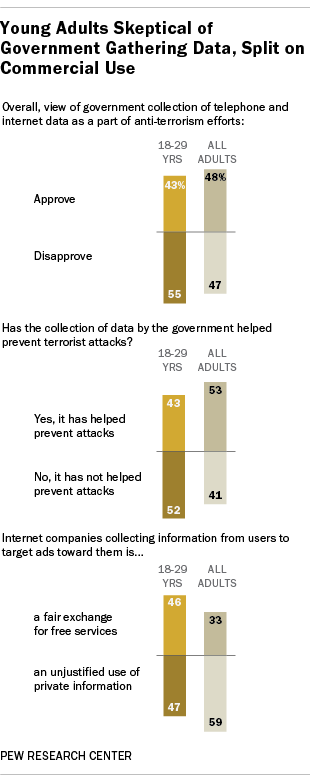
Despite their “share everything” image, privacy still matters for young American adults. But they distinguish between information they voluntarily share on social-networking sites and systematic monitoring by government agencies of telephone and internet traffic. In response to revelations last week that the NSA is conducting such surveillance of Americans, government officials told Congress this week that those programs have disrupted more than 50 terrorist plots at home and abroad.
A Pew Research Center survey from last week found that, among all age groups, young adults were most likely to say that it’s more important for the federal government not to intrude on personal privacy, even if that impedes its ability to investigate potential terrorist threats.
Another survey, released earlier this week, found that 55% of young adults disapproved of the government collecting telephone and internet data as part of its anti-terrorism efforts, and only 43% believed such collection has helped prevent terrorist attacks, as government officials from President Obama down have claimed.
Privacy online is a different matter. Young adults are more accepting of companies online trying to monetize their data than other age groups: In a Pew Research survey from last year, 46% of 18-to-29-year-olds said it’s a fair trade for companies to target ads to users based on their personal information in exchange for a free service, versus only a third of the general public.
Put it all together, and a picture emerges of young adults who are more willing than older Americans to let companies use their personal data for commercial purposes, in exchange for the social-networking functions they value, but are more skeptical about the government’s implicit security-for-privacy bargain.
